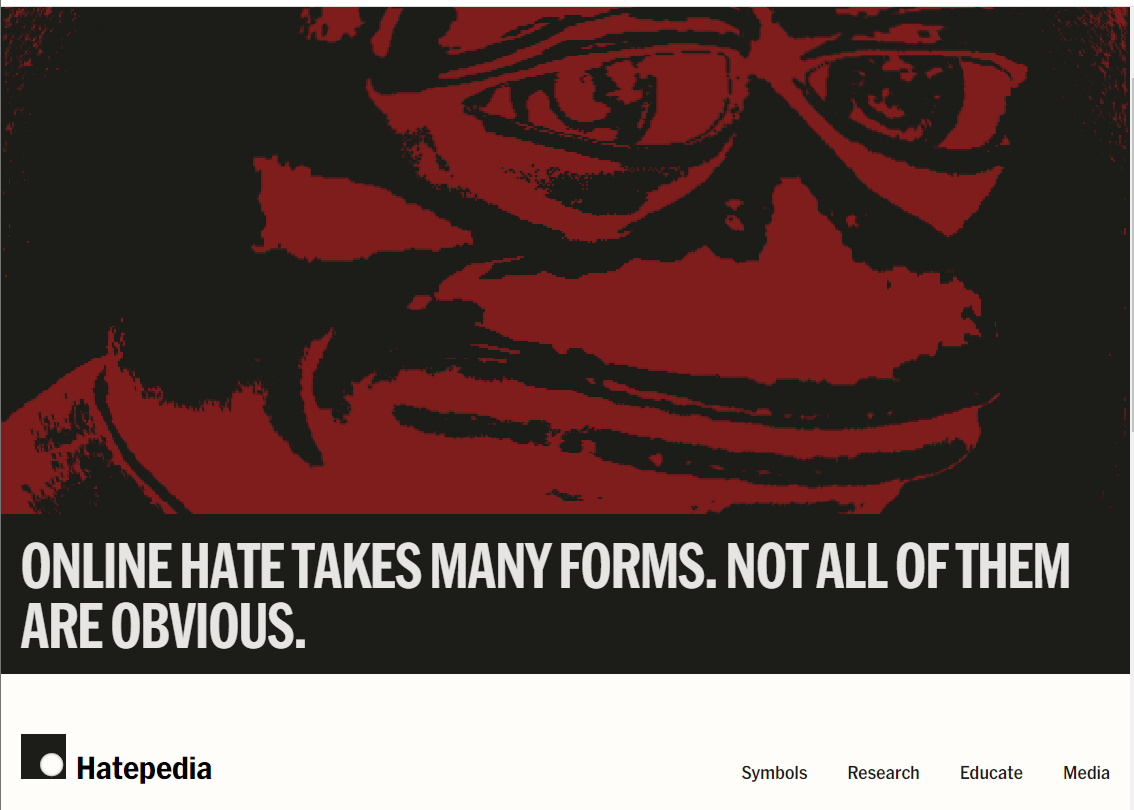UJA Toronto’s Sarah and Chaim Neuberger Centre for Holocaust Education is launching a new online database and resource that is specifically designed to combat the different ways modern hatred can manifest.
Hatepedia.ca is the first initiative created with funds received in the fall of 2020 from the Canadian Government’s Anti-Racism Action Program grant.
So far, the website has three resources:
- Canada’s Hate Symbol List, which is a publicly available list of symbols and meme characters that are commonly used in hateful contexts both online and offline
- Canada’s Hate Meme Database, which is limited to professionals who want to do deeper research on the subject
- Educate Against Hate, which is a set of free lesson plans for schools and community groups who want to teach about online hate
“(Hatepedia) is really built around the fact that not all hate symbols these days are as easily identifiable as a swastika or Confederate flag, and that they’re often shrouded,” said Dan Panneton, manager of the Neuberger Centre’s Online Hate Research and Education Project, which produced Hatepedia.
“We’re hoping to produce resources that help Canadians identify the shrouded and often bizarre manifestations of hatred that these days are inseparable from internet culture.”
Panneton said the centre has been receiving numerous queries from parents and educators about modern versions of hatred, especially through memes and social media. As a Holocaust education centre, they have a responsibility to not just look to the past for examples of hatred, but also to the present and even future to be relevant and effective, he said.
Although Hatepedia is present- and future-focussed and deals with all kinds of hatred, not just antisemitism, Panneton said it nonetheless fulfills an integral part of the Neuberger Centre’s Holocaust education mission.
“Most of the hate material and symbols that we’re finding are rooted in ideologies that both led to the Holocaust and that are inherently linked to either the denial, the distortion, or the celebration of the Holocaust.
“Traditional forms of Holocaust education will always have their value and their place. But we’re acknowledging that it’s only part of the fight and that we also need to be engaging with the manifestations of hatred online, which unfortunately, as we’ve seen during the pandemic, have really exploded.”
For now, the list is Hatepedia’s main resource, and it will be updated monthly to keep up with the ever-shifting nature of online culture. Hate memes and symbols on the list fall into five categories:
- Explicit Hate Symbols
- Contextual Hate Symbols and Slogans
- Meme Characters with Hateful Uses
- Contemporary Canadian Hate Group Symbols
- Historical Canadian Hate Group Symbols
Panneton says Hatepedia’s list of hate symbols is unique in that it is explicitly tailored to how these symbols quickly move and shift through the online space.
“Hate is changing so fast these days…. But social media, and particularly websites like 4chan, are just churning out new variations on meme culture that express pretty consistently bigoted views. And so for parents, educators, really, any members of the public, they’ll need resources like these to help identify things, because often as soon as a meme becomes known, they move on to new ones. So we need resources that basically play catch up with that.”
The website also focusses on online culture and the role that context plays.
“A lot of hate symbol lists don’t take into account symbols that include plausible deniability and irony poisoning. So those are two things that we really highlight in our resource.”
In this context, plausible deniability means turning an existing symbol or gesture into a hate symbol. People who use it maliciously can claim they only intended its innocent meaning while still communicating with each other in code.
Irony poisoning is when someone says their hateful statement is just a joke so it shouldn’t be judged or taken seriously, and is often used with Holocaust denial. By claiming these statements are jokes, they may be allowed to propagate and inform the worldviews of people who hear them enough times.
Although Panneton knows Hatepedia won’t be a silver bullet that solves racism and bigotry, he is hopeful that it can be part of the eventual solution.
“We’re excited to be revealing the resources to the world,” he said. “This will be a living resource, so we’ll be working on it continually. And we hope that it’s something that Canadians find useful.”
A webinar launching Hatepedia, including an introduction to its features, will be held June 16 at 7:30 p.m. Register to attend here.
